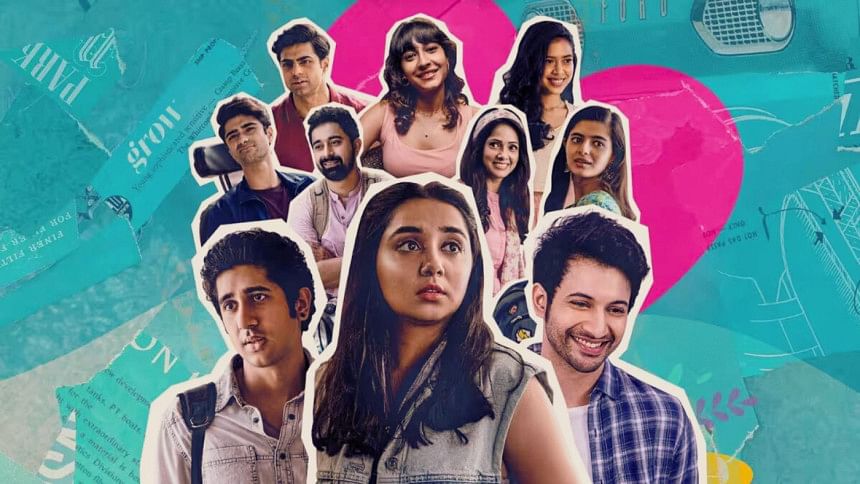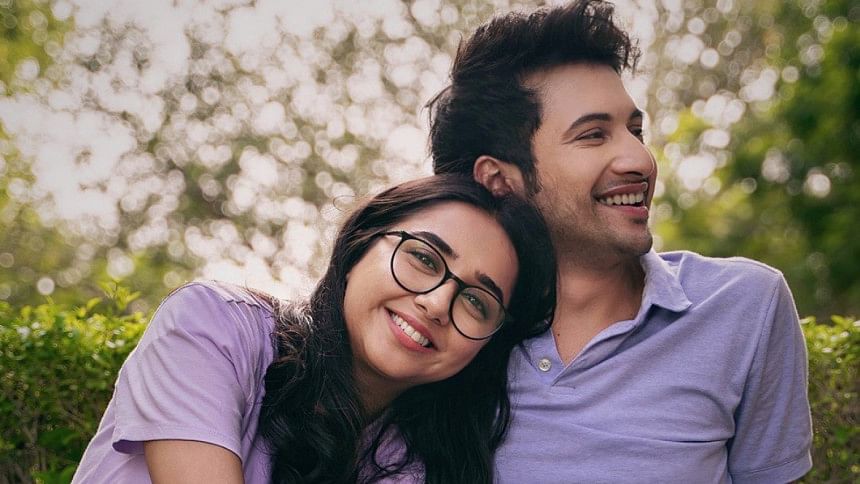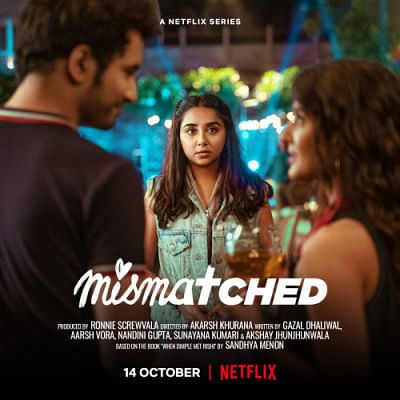‘Mismatched’: Of missed connections and out-of-sync stories

When "Mismatched" premiered on Netflix in 2020, it was a breath of fresh air for South Asian young adult content on Netflix. Adapted from Sandhya Menon's "When Dimple Met Rishi", the series struck a chord with its quirky yet heartfelt characters, relatable conflicts, and charming portrayal of modern-day romance. For fans like me, who fell in love with the characters in season 1, the three-year wait for season 3 was filled with anticipation.
Unfortunately, the latest instalment offers a mixed bag, blending moments of brilliance with overarching flaws that leave a bittersweet aftertaste.

Tech has always been central to this coming-of-age series, and it only makes sense that the third edition embraces the digital age. It shifts its focus from the humble beginnings of a summer course in Jaipur to the ambitious strides of tech institutes in Hyderabad. Dimple (Prajakta Koli) and Rishi (Rohit Saraf) are now navigating a long-distance relationship, adding more complexity to their once-seemingly-stable dynamic. This theme of 'mismatch'—between the real and the virtual, reality and expectation—dominates the season.
The series introduces several new arcs and revisits unresolved storylines. Anmol (Taaruk Raina), once the series' resident troll, embarks on a journey of self-improvement, grappling with insecurities in his relationship with Vinny (Ahsaas Channa). Meanwhile, Celina (Muskkan Jaferi) explores a burgeoning friendship with Krish (Abhinav Sharma) as she tries to move past her feelings for Namrata.
The addition of Betterverse, a virtual reality space created by Nandini Nahata (Dipannita Sharma), adds a tech-driven layer to the narrative and provides a safe haven for Rith Joshi (Lauren Robinson), a trans man seeking solace in a world that often feels hostile.

One of the season's undeniable strengths lies in its representation. Rith's story, which delves into gender dysphoria and societal rejection, is handled with sensitivity and grace. Robinson's performance is a standout, bringing depth to a character whose struggles feel authentic and deeply resonant.
Similarly, Anmol's arc, which sheds light on his emotional vulnerabilities, offers a natural progression that feels earned. Instead of going deep, the writers choose to go wide, tackling multiple issues without glossing over any of them.
While it may seem like they are ticking boxes, these storylines are not rushed or tokenistic; each one is thoughtfully developed and carries weight. Through Anmol's character, the show even critiques woke culture, poking fun at the empty slogans often thrown around by college students, striking a balance between satire and sincerity.
These diverse themes and struggles may seem hard to keep up with, but they make sense within the context of the characters' love lives. Their personal crises—work-life balance, miscommunication, and the blame game—are intensified by social issues, emphasising how relationship problems often have more layers than we give them credit for. Throw in the tech ecosystem, and "Mismatched" transforms into a potent cocktail of young adult life, far removed from the light, simplistic vibe of its first season.
In trying to modernise, however, the creators seem to have lost some of the emotional depth that made the show resonate in the beginning. Rishi and Dimple's struggles with balancing ambition and love feel predictable and lack the emotional weight needed to truly resonate. The central conflict between Rishi and Dimple, which should have been the season's anchor, instead feels like a rehash of their earlier issues. While their chemistry remains undeniable, the lack of meaningful growth in their relationship is disappointing, especially for fans who were rooting for them to find a satisfying resolution.
The introduction of Betterverse, while intriguing, sometimes feels disconnected from the main narrative, and its potential to explore deeper questions about identity and escapism remains largely untapped. This uneven pacing detracts from the emotional investment viewers might have in the characters, making it difficult to connect with the story.
As an early fan of the book and the first season, I had hoped season 3 would bring a sense of closure to the characters and their journeys. Instead, the series leaves several questions unanswered, hinting that this might not be the final instalment.
That said, the show does succeed in delivering moments of warmth and nostalgia that remind us why we fell in love with these characters in the first place. The camaraderie between the cast, the humorous banter, and the relatable struggles of young adulthood still shine through, albeit inconsistently. These glimpses of brilliance make the flaws all the more frustrating, as they serve as a reminder of what the series is capable of achieving.
The music continues to be a standout feature, effectively capturing the series' emotional depth and character journeys. The soundtrack is a vibrant mix of sounds and stories, mirroring the emotional rollercoaster of our favourite characters. The album features a diverse range of tracks, including the popular song "Gumshudah," composed by the talented sibling duo RUUH and JOH, which beautifully encapsulates the essence of the show, blending modern rhythms with soulful lyrics. Anurag Saikia's background score and "Ishq Hai" add another emotional layer, enhancing the show's moments of tension and intimacy.
For me, this was a season of contradictions. It is ambitious yet uneven, heartfelt yet frustrating, nostalgic yet underwhelming. It feels like both a reunion with beloved characters and a betrayal of the expectations we had for their journeys. Whether or not this is the series' 'swan song', it is clear that the show still has room to grow. For now, I will hold onto the hope that future instalments, if they happen, will find a way to honour the promise of its beginnings while giving these characters the closure they deserve.

 For all latest news, follow The Daily Star's Google News channel.
For all latest news, follow The Daily Star's Google News channel. 





Comments